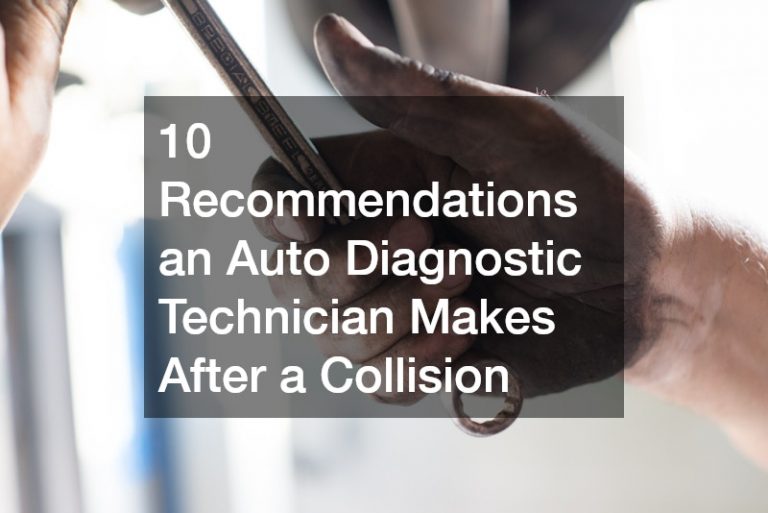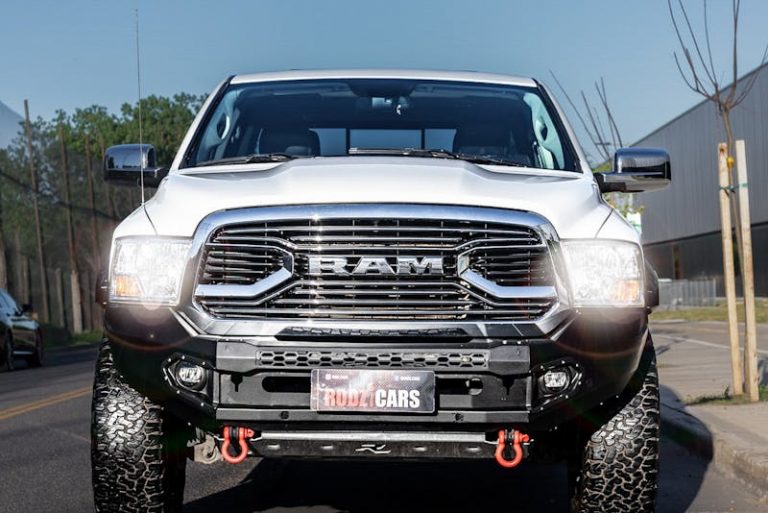

Car Topics You May Not Know
As cars become more advanced, staying up-to-date with the latest auto care tips is crucial for every car owner. Modern vehicles are packed with new technologies and features designed to enhance performance, safety, and convenience. However, these advancements also mean that maintenance and care strategies need to evolve. Whether you’re driving a cutting-edge electric vehicle or a sophisticated hybrid, understanding how to optimize and maintain your car’s performance can save you money, improve your driving experience, and extend the life of your vehicle. This blog aims to provide you with valuable insights and practical tips to keep your modern car in top condition.

Enhancing Fuel Efficiency in Modern Vehicles
As cars become more modern, fuel efficiency is a top priority for many car owners, especially as fuel prices fluctuate and environmental concerns rise. Modern cars are equipped with various technologies designed to maximize fuel economy, from advanced engine designs to hybrid and electric powertrains. To enhance fuel efficiency, it’s essential to adopt driving habits that complement these technologies. Smooth acceleration and braking, maintaining a steady speed, and avoiding unnecessary idling can significantly improve your car’s fuel consumption. Regular maintenance, such as keeping your tires properly inflated and using the recommended grade of motor oil, also plays a crucial role in ensuring your vehicle runs efficiently.
Specifically, for those who frequently tow a bumper pull cargo trailer, understanding the impact on fuel efficiency is vital. Towing can significantly increase fuel consumption, but there are ways to mitigate this. Ensuring your trailer is properly balanced and not overloaded can reduce the strain on your engine. Additionally, using aerodynamic features on your trailer can help cut down on wind resistance, further enhancing your vehicle’s fuel efficiency. By combining these specific strategies with general fuel-saving practices, you can make the most out of every gallon of fuel your modern car uses.
Navigating Advanced Infotainment Systems
As cars today become more sophisticated with infotainment systems that integrate navigation, entertainment, and connectivity features. These systems are designed to enhance the driving experience, offering everything from real-time traffic updates to seamless smartphone integration. Understanding how to navigate these systems effectively can greatly enhance your comfort and convenience on the road. Take the time to familiarize yourself with the user manual and explore the various functionalities your infotainment system offers. Voice commands, touchscreen controls, and customizable settings can all be tailored to your preferences, making your driving experience more enjoyable and efficient.
For added security and peace of mind, many advanced infotainment systems can be paired with auto anti theft GPS tracking technology. This integration allows you to monitor your car’s location in real-time, providing an extra layer of protection against theft. In the unfortunate event that your car is stolen, GPS tracking can help authorities locate and recover your vehicle quickly. By leveraging the full capabilities of your car’s infotainment system, you can not only enjoy a more connected and convenient driving experience but also enhance the safety and security of your modern car.

Maintaining Electric and Hybrid Car Batteries
Electric and hybrid cars are becoming increasingly popular due to their environmental benefits and efficiency. Maintaining the batteries in these vehicles is crucial to ensuring their longevity and optimal performance. One of the key aspects of battery maintenance is proper charging practices. It’s important to follow the manufacturer’s guidelines on charging cycles and to avoid frequent use of rapid chargers, which can reduce battery lifespan over time. Regularly checking for software updates from the manufacturer can also help, as these updates often include improvements in battery management systems that enhance performance and longevity.
Specifically, for those who use their electric or hybrid vehicles for daily commuting or long-distance travel, understanding the impact of driving habits on battery life is essential. Avoiding frequent hard accelerations and keeping the car within its optimal speed range can significantly reduce battery strain. Additionally, managing the car’s climate control system wisely—such as pre-conditioning the cabin while still plugged in—can conserve battery power for driving. Regular brake repairs are also crucial, as regenerative braking systems in electric and hybrid cars rely on well-maintained brakes to recapture energy efficiently. By adopting these specific maintenance practices, you can ensure your electric or hybrid car’s battery remains in excellent condition, providing reliable performance for years to come as cars advance.
Maximizing Safety Features in Newer Cars
As cars advance, they come equipped with a plethora of advanced safety features designed to protect drivers, passengers, and pedestrians. These features range from basic elements like airbags and anti-lock brakes to more sophisticated systems like adaptive cruise control, lane-keeping assist, and automatic emergency braking. To maximize the benefits of these safety features, it’s essential to understand how they work and how to use them effectively. Taking the time to read the car’s manual and possibly undergoing a brief training session can help you become more familiar with these systems, ensuring you can rely on them when needed.
In terms of specific strategies, maintaining your car’s safety features also involves ensuring they are covered under your auto insurance policy. Many insurance companies offer discounts for cars equipped with advanced safety systems, reflecting the reduced risk they pose. Ensuring that your insurance policy accurately reflects the safety features of your car can lead to significant savings. Additionally, staying updated with any recalls or software updates related to safety features is crucial, as manufacturers continually improve these systems to address new safety challenges.

Understanding Autonomous Driving Technology
Autonomous driving technology is rapidly advancing, as cars are bringing us closer to a future where they can drive themselves. Understanding how these systems work is essential for anyone owning or considering a car with autonomous capabilities. Autonomous driving technology relies on a combination of sensors, cameras, and sophisticated algorithms to navigate and make decisions on the road. Familiarizing yourself with the different levels of autonomy—from basic driver assistance systems to fully autonomous driving—can help you understand the capabilities and limitations of your vehicle. It’s important to remember that even with advanced technology, the driver remains responsible for the car and must be ready to take control when necessary.
For car owners interested in enhancing their autonomous driving experience, window tinting can play a role in improving sensor performance. Properly applied tinting can reduce glare and improve the accuracy of cameras and sensors used in autonomous systems. However, it’s crucial to ensure that the tinting complies with legal regulations and does not obstruct any sensors or cameras. Regular maintenance and cleaning of these sensors are also essential to ensure they function correctly.
Tips for Upgrading Car Software
As cars become more modern, they are essentially computers on wheels, with sophisticated software controlling everything from engine performance to infotainment systems. Keeping this software up-to-date is crucial for maintaining optimal vehicle performance and security. Manufacturers regularly release software updates that can enhance functionality, fix bugs, and improve safety. It’s important to check for updates regularly and have them installed either through over-the-air (OTA) updates or at your local dealership. Staying current with software updates ensures your car runs smoothly and benefits from the latest advancements.
When it comes to implementing these upgrades, local auto repair shops can be invaluable resources. While many updates can be done automatically, some might require professional assistance, especially for older models or more complex systems. By developing a good relationship with a trusted local auto repair service, you can ensure that your car’s software remains up-to-date.

Caring for High-Tech Car Interiors
The interiors of modern cars are equipped with a wide array of high-tech features designed to enhance comfort and convenience. From advanced climate control systems to integrated touchscreen displays, these features require proper care to remain functional and aesthetically pleasing. Regular cleaning and maintenance are essential to prevent damage and ensure longevity. Use appropriate cleaning products that are designed for the specific materials in your car, such as leather, fabric, or plastic. Avoid harsh chemicals that can damage surfaces or affect the functionality of electronic components.
For those looking to personalize and protect their high-tech interiors, adding a decal can be an effective option. Decals can provide a touch of personalization while also protecting surfaces from scratches and wear. When applying decals, ensure the surface is clean and free of dust to achieve a smooth finish. Additionally, consider using screen protectors for touchscreens to prevent scratches and reduce glare. By taking these specific steps, you can keep your car’s high-tech interior looking new and functioning perfectly, enhancing your overall driving experience as cars become sophisticated.
Efficient Use of Advanced Navigation Systems
As cars become more modern, they come equipped with advanced navigation systems that offer more than just directions. These systems can provide real-time traffic updates, suggest alternative routes, and even offer points of interest along your journey. To make the most of these features, it’s important to take the time to learn how to use your car’s navigation system effectively. Familiarize yourself with the different settings and options available, such as voice commands and route preferences. Regularly updating the maps and software ensures that you have the most accurate and up-to-date information.
For drivers who often travel on poorly maintained roads, understanding how your navigation system interacts with external factors like asphalt repair is crucial. Advanced navigation systems can alert you to road closures, construction zones, and areas where road conditions might be less than ideal. By keeping your system updated and paying attention to these alerts, you can plan your routes more efficiently and avoid potential delays or hazards.
Utilizing Connected Car Features
Connected car features have revolutionized the driving experience by integrating vehicles with the internet and various smart technologies. These features allow for real-time diagnostics, remote start, vehicle tracking, and even integration with smart home devices. Understanding how to utilize these features can greatly enhance convenience and safety. For instance, remote diagnostics can alert you to potential issues before they become serious problems, while remote start can ensure your car is at a comfortable temperature before you even step inside. To get the most out of these features, take the time to explore your car’s connectivity options and ensure your devices are properly paired.
A specific use case for connected car features is the integration with home maintenance services, such as soft washing. Imagine receiving notifications about your car’s condition while you’re coordinating home cleaning services. This seamless integration ensures you can manage both your vehicle and home more efficiently, saving time and reducing stress.
Future-Proofing Your Vehicle for Technological Advancements
Vehicle technology continues to evolve, future-proofing your vehicle becomes an essential consideration for car owners. This involves staying informed about the latest advancements and considering potential upgrades that can keep your car current with emerging trends. From software updates to hardware enhancements, there are various ways to ensure your vehicle remains competitive in the face of rapid technological changes. Regularly reviewing automotive news and updates from your car’s manufacturer can provide valuable insights into upcoming innovations and potential upgrades.
One specific aspect of future-proofing involves considering infrastructure changes, such as blacktop paving for roads. As urban planning and road construction evolve to accommodate new technologies, as cars become autonomous vehicles and smart traffic systems, ensuring your vehicle is compatible with these developments is crucial. Keeping abreast of local infrastructure projects and understanding how they impact your driving environment can help you make informed decisions about future-proofing your car.
Up-To-Date Car Evaluations
In conclusion, navigating the complexities of modern car ownership requires a combination of general knowledge and specific strategies tailored to the latest advancements in automotive technology. From enhancing fuel efficiency and navigating advanced infotainment systems to maintaining electric and hybrid car batteries and maximizing safety features, understanding the intricacies of your vehicle is essential. By staying informed and proactive, you can ensure your car remains in top condition, providing a safe, efficient, and enjoyable driving experience.
Moreover, leveraging the full potential of connected car features, keeping up with software updates, and preparing for future technological advancements can further enhance your vehicle’s performance and longevity. Whether it’s integrating home maintenance services like soft washing with your car’s connectivity options or understanding the impact of infrastructure changes like blacktop paving, being well-informed and adaptable is key.






